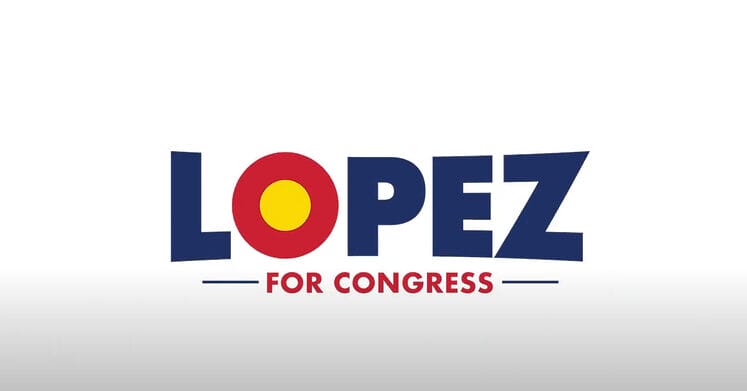
CDPHE Proposes Vaccine Rule Changes for Online Students and Natural Immunity
By Pam Long
The Colorado Department of Public Health and Environment has proposed rule changes to 6 CCR 1009-2 – The Infant Immunization Program and Immunization of Students Attending School. CDPHE is taking public input until December 20, 2022 on these changes. CDPHE will present their proposed changes to the Board of Health on January 18, 2023, and the Board of Health will vote on these changes in March 2023. These changes affect online students and people with natural immunity.
1. ONLINE STUDENTS
CDPHE proposed to expand the definitions of “schools” to include the addition of online educational programs with daycare, K-12, and college, but excludes the newly defined “students” to only students who are physically present in these public educational programs. Students who are not physically present are excluded from the vaccine and exemption reporting requirements:
“A CHILD WHO ATTENDS EDUCATIONAL PROGRAMS WHERE COURSES ARE OFFERED ONLINE ONLY AND THE CHILD IS NOT PHYSICALLY PRESENT AT THE INSTITUTION FOR PARTICIPATION IN ENRICHMENT, ATHLETICS, OR OTHER ACTIVITIES.”
CDPHE requires watchdogs on vaccine rule changes due to its long history of reaching beyond authority in statute. CDPHE has previously attempted to include homeschool students in vaccine requirements, and ultimately CDPHE aims to include all adults in vaccine requirements, regardless if adults work in an office or at home. However, SB2020-163 clearly detailed in three sections that homeschool students and private schools were excluded.
SB2020-163 dictates that a district can only require vaccines or exemptions from homeschool or nonpublic school students if the student attends a public school for part of the day:
“(b) (I) A SCHOOL DISTRICT MAY REQUIRE COMPLIANCE WITH SUBSECTION (1) OF THIS SECTION IF THE STUDENT PARTICIPATING IN A NONPUBLIC HOME-BASED EDUCATIONAL PROGRAM ATTENDS A SCHOOL OF THE SCHOOL DISTRICT FOR A PORTION OF THE SCHOOL DAY;”
SB2020-163 dictates that an online program through a public school can only require vaccines or exemptions when students are physically present for enrichment, athletics, or other activities:
“O. School – all child care facilities licensed by the Colorado Department of Human Services including: Child care centers, school-age child care centers, preschools, day camps, resident camps, day treatment centers, family child care homes, foster care homes, and head start programs; public, private, or parochial kindergarten, elementary, or secondary schools through grade twelve, or a college or university. SCHOOLS INCLUDE EDUCATIONAL PROGRAMS WHERE COURSES ARE OFFERED ONLINE ONLY BUT WHERE ENROLLED STUDENTS ARE PHYSICALLY PRESENT AT THE INSTITUTION FOR PARTICIPATION IN ENRICHMENT, ATHLETICS, OR OTHER ACTIVITIES.”
SB2020-163 dictates that an online student who is NOT physically present for enrichment, athletics, or other activities is an exception to vaccine and exemption requirements.
“R. Student – any person enrolled in a Colorado school as defined in section I (O), except:
1. A CHILD WHO ATTENDS EDUCATIONAL PROGRAMS WHERE COURSES ARE OFFERED ONLINE ONLY AND THE CHILD IS NOT PHYSICALLY PRESENT AT THE INSTITUTION FOR PARTICIPATION IN ENRICHMENT, ATHLETICS, OR OTHER ACTIVITIES.”
2. DIPHTHERIA, TETANUS, PERTUSSIS
CDPHE proposed a change to DTaP and Tdap vaccine titers testing, a blood test to measure antibodies that is used to determine immunity to disease:
“FOR DTAP AND TDAP, BOTH THE DIPHTHERIA AND TETANUS TITERS MUST BE POSITIVE. A TITER IS NEVER ACCEPTABLE TO DEMONSTRATE IMMUNITY TO PERTUSSIS. THUS, THE DEPARTMENT WILL ACCEPT POSITIVE TITERS FOR TETANUS AND DIPHTHERIA AND THUS REQUIRE: 1) A CERTIFICATE OF MEDICAL OR NONMEDICAL EXEMPTION FOR THE PERTUSSIS COMPONENT, OR 2) VACCINATION WITH A PERTUSSIS-CONTAINING VACCINE.”
This is a change from “For DTaP substitution, both the diphtheria and tetanus titers must be positive.” Requiring an exemption for Pertussis requires some explanation from CDPHE. The CDC admits subtly that it is an ineffective vaccine, “But the DTaP is less effective in preventing whooping cough. Nearly all children who receive all five recommended doses are protected for one year. After that, immunity wanes.” Boston University School of Public Health in 2017 reported a study that concluded in more honest terms that acellular Pertussis vaccines do not prevent infection and do not provide herd immunity. So why is CDPHE requiring an exemption for a Pertussis vaccine that does not work? The public deserves an evidenced-based explanation and not an obscure “because vaccines safe lives” response.
And for parents, consider that the three-in-one DTaP vaccine is outdated. We have known since 1896 that Diphtheria is caused by a bacteria in livestock manure, and only infected people who lived in stables over manure heaps and children at schools near railways that transported manure. Where does Tetanus bacteria originate? Manure and the intestines of livestock. Also, Tetanus is not a communicable disease. According to the CDC, C. tetani bacterium is also anaerobic (cannot survive in oxygen). The bacteria is only dangerous in deep puncture or crush wounds cut off from oxygen. Assess if your children have these risk factors in the first world where most families are not raising livestock, using dangerous farming equipment, or living in unsanitary conditions.
3. MEASLES, MUMPS, AND RUBELLA
CDPHE proposed a change to titers for the required vaccines for the MMR vaccine titers testing:
“FOR MMR, TITERS FOR MEASLES, MUMPS, AND RUBELLA MUST ALL BE POSITIVE. IF ANY SINGLE TITER IS NEGATIVE, THE DEPARTMENT WILL REQUIRE: 1) A CERTIFICATE OF MEDICAL OR NONMEDICAL EXEMPTION FOR THE COMPONENT(S), OR 2) VACCINATION WITH AN MMR VACCINE.”
This is only a wording change, and not a requirement change. However, the implementation of the MMR requirement for college students becomes problematic for older adults who enroll in college. A separate section I.O.1. states that non-traditional adult students who live off campus and not in residence halls, or use online instruction only, are not included in these requirements for colleges. Because this is not clearly re-iterated in the college section IX, colleges and universities have required older adult students to provide vaccine records. Often older students who return for graduate degrees do not have possession of vaccine records from childhood. Furthermore, health administrators rarely communicate the right to exemption by titers testing when providing vaccine requirements. Therefore, section IX should clarify exclusion of vaccine requirements for older adults in college to remove a barrier to public education. Now is a really critical time to push back on vaccine requirements based on “dorm” policies of the past, when more and more students live off campus.
4. HEPATITIS B
CDPHE proposed a change to only accept vaccine immunity to Hepatitis B:
“FOR HEPATITIS B, A POSITIVE TITER IS ALLOWABLE ONLY AFTER DOCUMENTATION OF COMPLETION OF AN APPROVED HEPATITIS B VACCINE SERIES.”
There is a Hepatitis B serologic test that can show immunity due to prior infection, so why is CDPHE not allowing it as proof of immunity? Since the CDC lists the Hep B risk groups as drug users who share drug needles, prostitutes, and men who have sex with men, I recommend just a simple “Not Applicable” should apply for most people. This rule change is the most egregious as it is the foot-in-the-door to set a policy precedent on invalidating natural immunity and ignoring that not all people have risk of a particular disease.
5. CDPHE AND THE BOARD OF HEALTH
This rule change process is also an opportunity to recommend to the Board of Health that CDPHE should accept proof of T-cell immunity in addition to titers testing in the year 2023, if it aims to support updated evidence-based public health measures and re-establish trust with the public. CDPHE’s longstanding and deliberate omission to explain testing for natural immunity and passive immunity to the public indicates an organizational bias to require vaccine compliance in order to receive millions of dollars in CDC grants. CDPHE only promotes vaccine-based herd immunity with the goal of 95% vaccine uptake. This approach financially benefits CDPHE and pharmaceutical companies. Naturally acquired herd immunity was established in the 1930’s with measles when 60% of the population was exposed. For decades we have had the technology to test immunity on the individual level. Titers testing can reveal that a fully vaccinated person did not develop antibodies or immunity to a disease and has a false sense of security. Furthermore, titers testing can reveal that a person has antibodies to a disease in which the person was not vaccinated but gained natural immunity. Titers testing is scientific approach to deciding whether a person allegedly needs a vaccine or booster, and yet vaccine and booster recommendations are largely made arbitrarily in a one-size-fits-all schedule. Mass titers testing would undermine the emerging public health spin that people who refuse vaccines are “free riders” who are protected by the herd members who chose vaccination, when in reality the unvaccinated might have natural immunity, and are not “putting the immune compromised at risk.”
Although the Board of Health will insist that vaccine liability is off topic for their agenda, it is always relevant to ask questions about vaccine liability. Since the National Childhood Vaccine Injury Act of 1986, Congress shielded vaccine manufacturers and vaccine providers (doctors, nurses) from liability for adverse reactions, including disability and death. However, it is not established in case law if employers, school administrators, and government officials are liable for vaccine coercion and injury. In 2022, in the first case of its kind, Northshore University Health System in Illinois agreed to a $10.3 million settlement for requiring healthcare workers to take a COVID-19 vaccine for employment without accepting religious exemptions.
Every rule change is also an opportunity to request that CDPHE publicly report vaccine adverse reactions data on its dashboard of vaccine compliance numbers by school. How can a public health program measure its success without analysis of both the benefits and harms? We can no longer accept “95% compliance” as the sole criteria for a successful health program when the counterbalance of measuring the health harms are omitted. Open VAERS is a user-friendly, searchable website of the CDC’s and FDA’s Vaccine Adverse Event Reporting System, which reports alarming numbers of harms caused by the COVID vaccines. Is CDPHE monitoring signals that would identify hot lots or necessitate a product recall?
The public can provide input by Dec. 20, 2022 at 5p.m. on these proposed rule changes. Submit your feedback using CDPHE’s Google form or by emailing [email protected]. CDPHE does not actually consider public input on their proposals as required in the public stakeholder engagement process in the Administrative Procedure Act, which they divulge in transparency with this statement in their email notification:
“Feedback collected through this form or email is considered informal feedback intended to help formalize the draft rule language. It will NOT be shared with the Board of Health nor be included in the rulemaking record.”
CDPHE remains in violation of open meeting laws, as the Board of Health continues online only Zoom meetings, despite a public health emergency is not declared at present date. You can ask how they legally justify this barrier with the public at [email protected] while CDPHE employees work in their building every day. You will likely get a vague response from an unnamed email account at CDPHE. You can also sign up in advance for zoom links to listen to the rule change meetings, but the Board of Health decides who can testify and they refuse to answer any public questions. This is the environment for entrenched groupthink and abandonment of evidence-based health policy. In recent years, CDPHE only responds begrudgingly to state legislators and lawsuits which challenge their agendas. The end goals for CDPHE are to incrementally deny natural immunity and make vaccine exemptions nearly impossible to obtain, while expanding data which tracks compliance of mandates in an adult vaccine schedule. These rule changes and rulemaking process are not indicative of a goal to reestablish public trust, but we must engage despite the challenges, with new momentum from 40% of the population now questioning the current vaccine program.









Responses
Whatever happened to personal responsibility and choice. Quit trying to rub our lives. Give me the information I’ll make an informed decision.